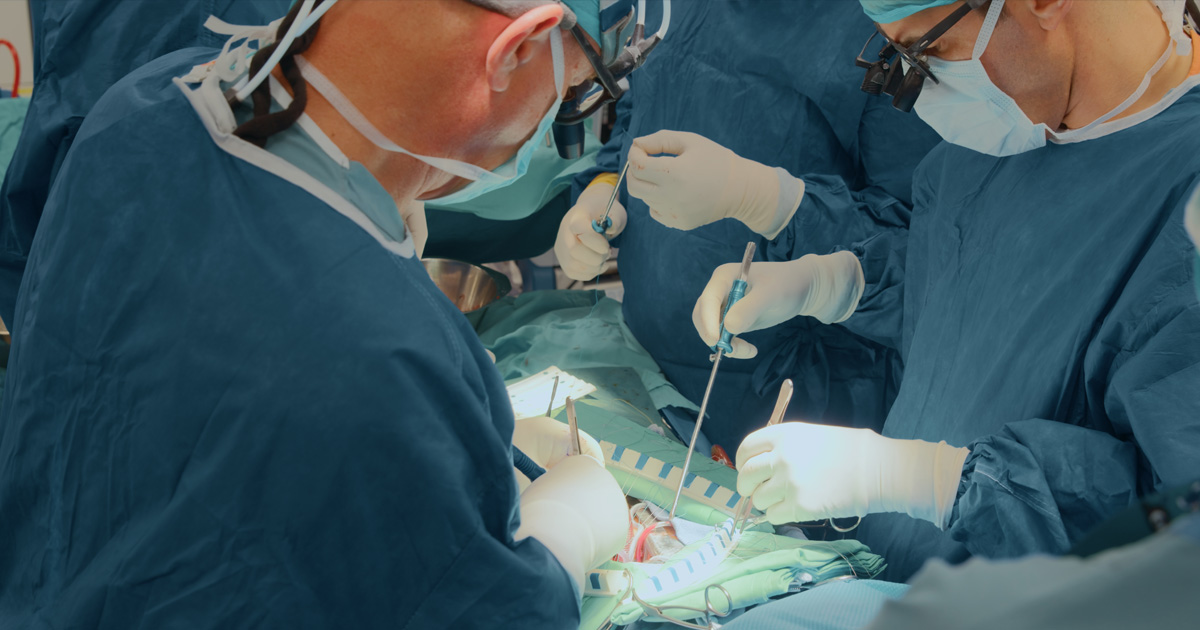What to Expect for Aortic Valve Surgery at Allegheny General Hospital

If you’ve been living with symptoms of heart damage or aortic valve disease, you and your doctors may explore the possibility of surgery for treatment.
At AHN Allegheny General Hospital (AGH), our heart doctors are here to help you feel better through aortic valve surgery to improve your heart health.
What is the aortic valve?
The aortic valve is one of the heart’s four valves. It works like a one-way door that helps blood flow from your heart to the body through a big blood vessel called the aorta.
Certain heart conditions can damage your aortic valve and cause it to stop working properly. The main ones are:
- Aortic stenosis – When calcium builds up in your aortic valve.
- Aortic regurgitation – When the valve wears down and blood leaks backward into the heart.
If these conditions go untreated, they can cause uncomfortable symptoms and serious health risks.
“Conditions like aortic stenosis often get worse over time,” said M. Scott Halbreiner, MD, director of the AHN Center for Aortic Disease. “People sometimes ignore their symptoms, but getting help early can protect your heart and help you live longer and feel better.”
Signs you may need to get your heart checked
There are several key symptoms you should look for when deciding whether to get evaluated for heart disease. These are:
- Shortness of breath
- Tiredness
- Feeling a fast or irregular heartbeat
- Chest discomfort or pain
NOTE: If you ever have severe heart symptoms — like sudden shortness of breath or chest pain — go to the nearest emergency room.
Getting your heart evaluated
If you’re experiencing heart disease symptoms and visit an AHN cardiologist for an evaluation, they will assess your heart health by:
- Performing tests to look for signs of aortic valve disease, such as frequent tiredness or passing out often
- Looking at your age, lifestyle, and health history
- Evaluating your overall physical health to decide on next steps for your treatment
Your AHN doctors can help answer any questions you have about symptoms and how to stay on top of your heart health.
Finding the right treatment for you
If you have heart disease, your doctors will help you explore treatments like medication and lifestyle changes. However, if your aortic valve is badly damaged, you may need aortic surgery to replace it.
You may qualify for aortic valve surgery if you:
- Have symptoms related to aortic valve disease
- Have severe calcium buildup on your aortic valve
Preparing for surgery
If surgery is recommended, your doctors will check in with you regularly to answer your questions and talk with you about ways to stay healthy before your procedure, like:
- Taking good care of your teeth
- Eating a balanced diet
- Limiting physical activity to avoid injury or stress to your heart
What to expect during surgery
During surgery for aortic valve disease treatment, your doctors will remove your old aortic valve and replace it with a new, healthy valve to improve blood flow.
If open-heart surgery is considered risky for you based on your age or other health issues, doctors may use a different method called transcatheter aortic valve replacement (TAVR) instead.
TAVR is a minimally invasive procedure where doctors use a catheter (long tube) to place a new valve in your heart. Your care team will talk with you about TAVR and what to expect for this surgery if it is right for you.
Recovery and continued care
Soon after surgery, your doctors will ensure you begin a smooth recovery by:
- Checking your stitches as you heal
- Referring you to specialists like nutritionists and physical therapists
- Watching how your new aortic valve is working
In the months and years that follow, they will also prioritize your long-term recovery by:
- Doing yearly heart scans
- Performing stress tests to check your heart’s activity
“A new valve can be life-changing,” said Dr. Halbreiner. “But it’s important we check in with patients, so we can catch any changes early and make sure their heart stays strong for years to come.”
Helping you care for your heart
If you have aortic valve disease, cardiologists at AHN Allegheny General Hospital can help you feel stronger and more comfortable with the right treatment plan. Learn more about heart valve surgery at AGH.
About M. Scott Halbreiner, MD
Dr. Halbreiner is the Director of Research in Cardiac Surgery and has been widely and nationally published in the field, including presentations at national conferences. He serves as the primary investigator (PI) in many international and national clinical trials as well as the PI for the largest multi-institutional collaborative research effort in cardiac surgery – Cardiothoracic Surgical Trials Network (CTSN).
Allegheny General Hospital (AGH) has provided exceptional health care services to residents of Pittsburgh's North Side and surrounding communities since 1886. Our physicians are renowned in their fields. Together with nurses, technicians, clinicians, and support staff, our team delivers advanced care in nearly every medical and surgical specialty.

